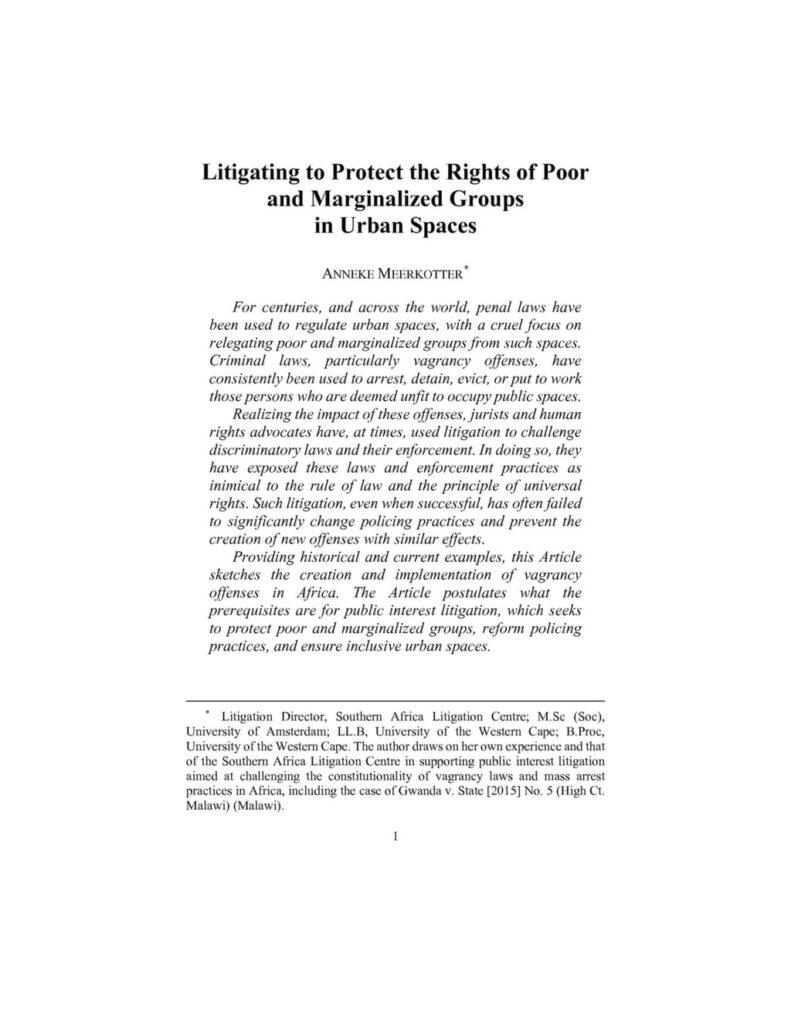For centuries, and across the world, penal laws have been used to regulate urban spaces, with a cruel focus on relegating poor and marginalized groups from such spaces. Criminal laws, particularly vagrancy offenses, have consistently been used to arrest, detain, evict, or put to work those persons who are deemed unfit to occupy public spaces. Realizing the impact of these offenses, jurists and human rights advocates have, at times, used litigation to challenge discriminatory laws and their enforcement. In doing so, they have exposed these laws and enforcement practices as inimical to the rule of law and the principle of universal rights. Such litigation, even when successful, has often failed to significantly change policing practices and prevent the creation of new offenses with similar effects.
Providing historical and current examples, this Article sketches the creation and implementation of vagrancy offenses in Africa. The Article postulates what the prerequisites are for public interest litigation, which seeks to protect poor and marginalized groups, reform policing practices, and ensure inclusive urban spaces.

